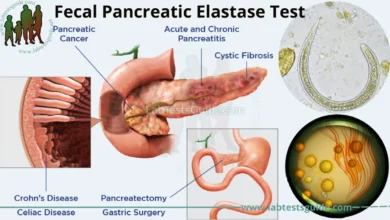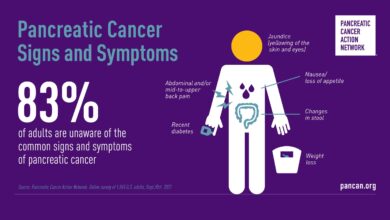Unlocking the Power of Pancreatic Enzymes: A Comprehensive Guide

Pancreatic enzymes play a vital role in your body’s ability to digest and absorb nutrients. These unsung heroes of the digestive system are often overlooked, but their importance cannot be overstated. Whether you’re simply curious about how your body processes food or looking for ways to manage a health condition like pancreatitis, understanding pancreatic enzymes can be a game-changer.
In this article, we’ll dive deep into what pancreatic enzymes are, their functions, and how they contribute to overall health. Let’s explore this fascinating topic in a casual yet expert manner.
What Are Pancreatic Enzymes?
Pancreatic enzymes are proteins secreted by the pancreas that help break down food into smaller, absorbable nutrients. These enzymes are a crucial part of the digestive process, working silently behind the scenes to ensure your body gets the fuel it needs.
The Three Key Types of Pancreatic Enzymes
- Amylase:
Amylase is responsible for breaking down carbohydrates into sugars. When you eat a slice of bread or a bowl of pasta, amylase ensures these carbs are converted into glucose, providing energy for your body to function. - Lipase:
This enzyme tackles fats, breaking them down into fatty acids and glycerol. Without lipase, your body would struggle to absorb fat-soluble vitamins like A, D, E, and K. - Protease:
Protease breaks down proteins into smaller peptides and amino acids. These amino acids are essential for building muscles, repairing tissues, and supporting immune function.
Where Do They Come From?

Pancreatic enzymes are produced in the pancreas, a gland located behind your stomach. They are released into the small intestine via the pancreatic duct, where they mix with bile to efficiently digest your food.
The Role of Pancreatic Enzymes in Digestion
The digestive process is complex, but pancreatic enzymes make it look effortless. Here’s how they contribute to every meal you eat:
Breaking Down Food into Nutrients
As soon as food leaves your stomach and enters the small intestine, pancreatic enzymes kick into action. They work alongside stomach acids and bile to ensure every macronutrient—carbohydrates, proteins, and fats—is broken down into a form your body can absorb.
Ensuring Nutrient Absorption
Without these enzymes, nutrients would pass through your digestive system unabsorbed. This means your body would miss out on vital energy and essential vitamins.
Supporting Gut Health
Pancreatic enzymes also help maintain a balanced gut environment. By efficiently digesting food, they reduce the risk of undigested particles causing inflammation or harmful bacterial overgrowth in the gut.
Health Conditions Related to Pancreatic Enzyme Deficiency
When your pancreas doesn’t produce enough enzymes, it can lead to serious health issues. Here’s a closer look at conditions that can arise from enzyme deficiencies:
Chronic Pancreatitis
Chronic pancreatitis damages the pancreas over time, reducing its ability to produce enzymes. This leads to malabsorption, weight loss, and nutritional deficiencies.
Cystic Fibrosis
In people with cystic fibrosis, thick mucus blocks the pancreatic ducts, preventing enzymes from reaching the small intestine. Enzyme supplementation is often necessary to manage digestion.
Exocrine Pancreatic Insufficiency (EPI)
EPI occurs when the pancreas cannot produce enough enzymes to support normal digestion. Common symptoms include bloating, diarrhea, and fatty stools, which indicate that fats are not being properly absorbed.
Diabetes
Though not directly related, diabetes can sometimes affect pancreatic function, leading to reduced enzyme production and digestive issues.
Signs You Might Need Pancreatic Enzyme Supplements
While your body naturally produces these enzymes, certain factors might necessitate supplementation. Let’s explore the signs to look out for:
Digestive Distress
Frequent bloating, gas, or abdominal pain after meals could indicate that your body isn’t breaking down food efficiently.
Fatty or Greasy Stools
If you notice fatty, foul-smelling stools, it’s a sign that fats are not being properly digested, which often points to a lipase deficiency.
Unexplained Weight Loss
Inadequate digestion can prevent your body from absorbing enough calories, leading to unintentional weight loss over time.
Pancreatic Enzyme Supplements: When and How to Use Them
Pancreatic enzyme supplements are designed to mimic your body’s natural enzymes and are often prescribed to help with digestive issues. Here’s what you need to know:
How They Work
These supplements contain a mix of amylase, lipase, and protease. They’re usually taken with meals to assist in breaking down food as it enters your digestive system.
Who Needs Them?
People with conditions like EPI, chronic pancreatitis, or cystic fibrosis are often prescribed enzyme supplements. However, anyone experiencing persistent digestive problems should consult a healthcare provider before starting supplementation.
Potential Side Effects
Though generally safe, these supplements can cause mild side effects like nausea or upset stomach in some individuals. Always use them under medical supervision to ensure proper dosage and effectiveness.
Natural Ways to Boost Pancreatic Health
Taking care of your pancreas can enhance its enzyme production and overall function. Here are some tips to maintain a healthy pancreas:
Adopt a Balanced Diet
Focus on whole foods like fruits, vegetables, lean proteins, and healthy fats. Avoid processed foods and sugary drinks that can strain your pancreas.
Stay Hydrated
Water is essential for maintaining healthy digestion and enzyme activity. Drink plenty of fluids throughout the day to support your pancreatic function.
Limit Alcohol Intake
Excessive alcohol consumption is a major risk factor for pancreatitis, which can severely impair enzyme production.
Manage Stress
Chronic stress can negatively affect your digestive system. Practice relaxation techniques like yoga, meditation, or deep breathing exercises to keep your pancreas functioning optimally.
Final Thoughts
Pancreatic enzymes are essential for your body’s ability to digest and absorb nutrients, making them an integral part of overall health. From breaking down your favorite meals to ensuring your body gets the energy and nutrients it needs, these enzymes work tirelessly to support you.
If you suspect a deficiency or are dealing with persistent digestive issues, consult a healthcare professional for guidance. Whether through lifestyle changes, natural remedies, or enzyme supplementation, taking steps to support your pancreatic health can greatly improve your quality of life.
Embrace the power of pancreatic enzymes, and give your digestive system the care it deserves!

